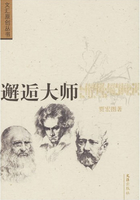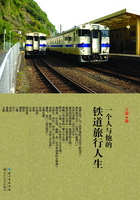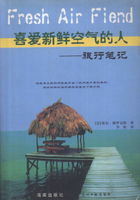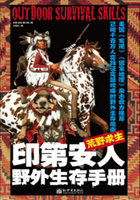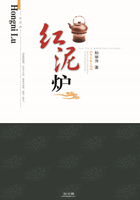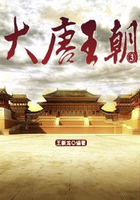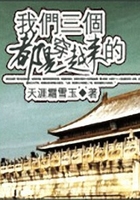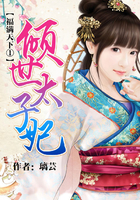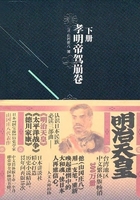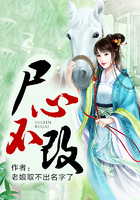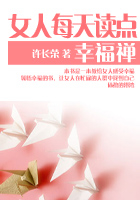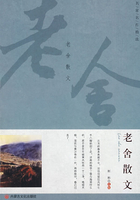道教是中国唯一的土生土长的传统宗教,是中国传统文化的综合体。要了解中国的传统文化,就得了解道教。本篇介绍的是道教的形成、道教教义的基本组成部分以及中国道教的基本特点。
1.道教是怎样形成的?
How did Daoism take shape?
Daoism (道教) is a religion native to China. It took shape during the reign of Emperor Shun Di (顺帝年间, 125—144) of the Eastern Han Dynasty. At that time, Zhang Daoling (张道陵) founded the Five-Picul-of-Rice Sect (五斗米教), the early form of Daoism. Its followers worshiped Lao Zi (老子) as their great teacher and took Dao De Jing (《道德经》) as their accepted standard of thought. They believed that a man could obtain immortality through personal cultivation.
Zhang was born in Anhui Province and in his early years studied Confucianism. Later, however, he became dissatisfied with some of the Confucian principles because they failed to offer methods of immortality. So he began to study the way to immortality; and he soon mastered the process of producing dan (丹), as a help to live forever. In his hometown, Zhang couldn’t afford to buy the herbs that needed for the dan production; so he and his followers came to Sichuan Province and settled in Mt. Heming (鹤鸣山) in Dayi County (大邑县), where he could get enough herb material. While continuing his Daoist studies, he used Daoist methods to offer medical treatment to the local people and eventually gathered 10,000 followers to form the Five-Picul-of-Rice Sect. The five picul refers that each member of the sect must pay a certain amount of rice or firewood when he or she joins in the section. The sect was officially established in Sichuan, and Mt. Qingcheng (青城山) became the spot where Zhang preached his doctrines.
Towards the end of the Eastern Han Dynasty, a peasant rebel leader named Zhang Jiao (张角) established another Daoist sect called Tai-ping Dao (太平道, The Peace Sect). He also managed to gather 10,000 followers and he organized an uprising in the name of the sect which heavily weakened the feudal ruling class.
Notes:1)picul担;2)cultivation培养;3)principle原理;4)sect派别;5)uprising起义;6)weaken减弱
2.道教教义的基本组成部分有哪些?
What are the essential parts of Daoism doctrine?
Daoist doctrine was rooted on age-old witchcraft, recipes for immortality and the concepts of Huang Di (the Yellow Emperor) and Lao Zi. It greatly influenced economy, culture and political thinking of feudal China for more than 1,700 years.
The age-old witchcraft goes back at least the 21st and 11th centuries B. C. People worshiped gods, ghosts, and numerous supernatural beings—heavenly, earthly and human. Heavenly beings include Blue, Yellow, White and Black Kings, as well as gods of the sun, the moon, stars, wind, rain, thunder, and lightening. Earthly spirits include local village gods, agricultural gods, river gods, as well as the gods of the five mountains—Taishan (泰山), Hengshan (衡山), Huashan (华山), another Hengshan (恒山) in Shanxi Province, and Songshan (嵩山). Human supernatural beings include ancestral, sages and personages of virtue, loyalty, filial piety, justice and chastity.
Beginning with the Spring and Autumn Period, many persons wanted to live forever. Some books from that time described how supernatural beings live eternally and propose methods by which human beings can do the same. One focused on increasing one’s qi (气), which literally means“vitality.”It
is thought that such method exercises to absorb qi from outside the body. Another method was gradually developed, called alchemy. Alchemists attempted to produce dan (丹) by refining cinnabar. People expected to achieve long life after ingesting dan, and Daoism included the recipes for immortality as part of its key doctrine.
Chinese people often refer to ourselves as the descendents of Huang Di, the Yellow Emperor. Ancients believed that he was a part-real and part-legendary being. In the early Western Han Dynasty, the ruling class believed in both the ways of Huang Di and Lao Zi for seeking peace and quiet; and they hoped this belief would dominate the whole country. At the beginning, Daoists accordingly worshiped both Huang Di and Lao Zi; but later they shifted the emphasis to focus only on Lao Zi who was generally admitted to be the founder of Daoism.
Notes:1)witchcraft巫术;2)recipe秘诀;3)supernatural神的;4)personage人物;5)chastity贞洁;6)vitality活力;7)alchemist炼金术士;8)cinnabar朱砂;9)ingest咽下
3.老子是谁?
Who is Lao Zi?
It is said that Lao Zi (老子) lived about the same time as Confucius. His proper name was Li Er (李耳); and he is also known as Elder Dan (老聃), Senior Lord (老君) or Daoist Lord Lao Zi (老子道君). However, few people know about his life. Legends say that he was born with grey hair in the later years of Spring and Autumn Period in Ku Prefecture (苦县) of the State of Chu (楚国) on the present site of Luyi County (鹿邑), Henan Province.
Daoist legends say that he worked as an archivist in the Imperial Library of the Zhou court, and that Confucius intentionally or accidentally met him browsing through library scrolls. In the following months, Confucius discussed ritual and propriety with Lao Zi who later resigned from his post when he saw the state in decline. Little is known about him after this point. According to an old story, he rode a purple buffalo, travelled west into the State of Qin, and disappeared into the vast desert there. As he passed through the western-most gate, a guard said to him,“Since you are about to leave the world behind, could you write a book for my sake?”Lao Zi did so. He wrote a book in two parts, setting out the meaning of The Way and Virtue. The whole book has some 5,000 characters and it is called Dao De Jing.
Notes:1)prefecture府;2)archivist档案保管员;3)intentionally故意地;4)accidentally偶然地;5)browse浏览;6)scroll卷轴
4.《道德经》是什么书?
What is Dao De Jing?
Dao De Jing (道德经) is a philosophical prose that has had great influence on Chinese thought. It can be translated as“The Scripture of the Way and the Virtue”, and it covers many areas of philosophy, from individual spirituality to techniques for governing society. Being often referred as the book of 5,000 characters, it has two parts—dao and de. Dao De Jing has been translated into European languages, and in English alone, there are over 30 versions.

